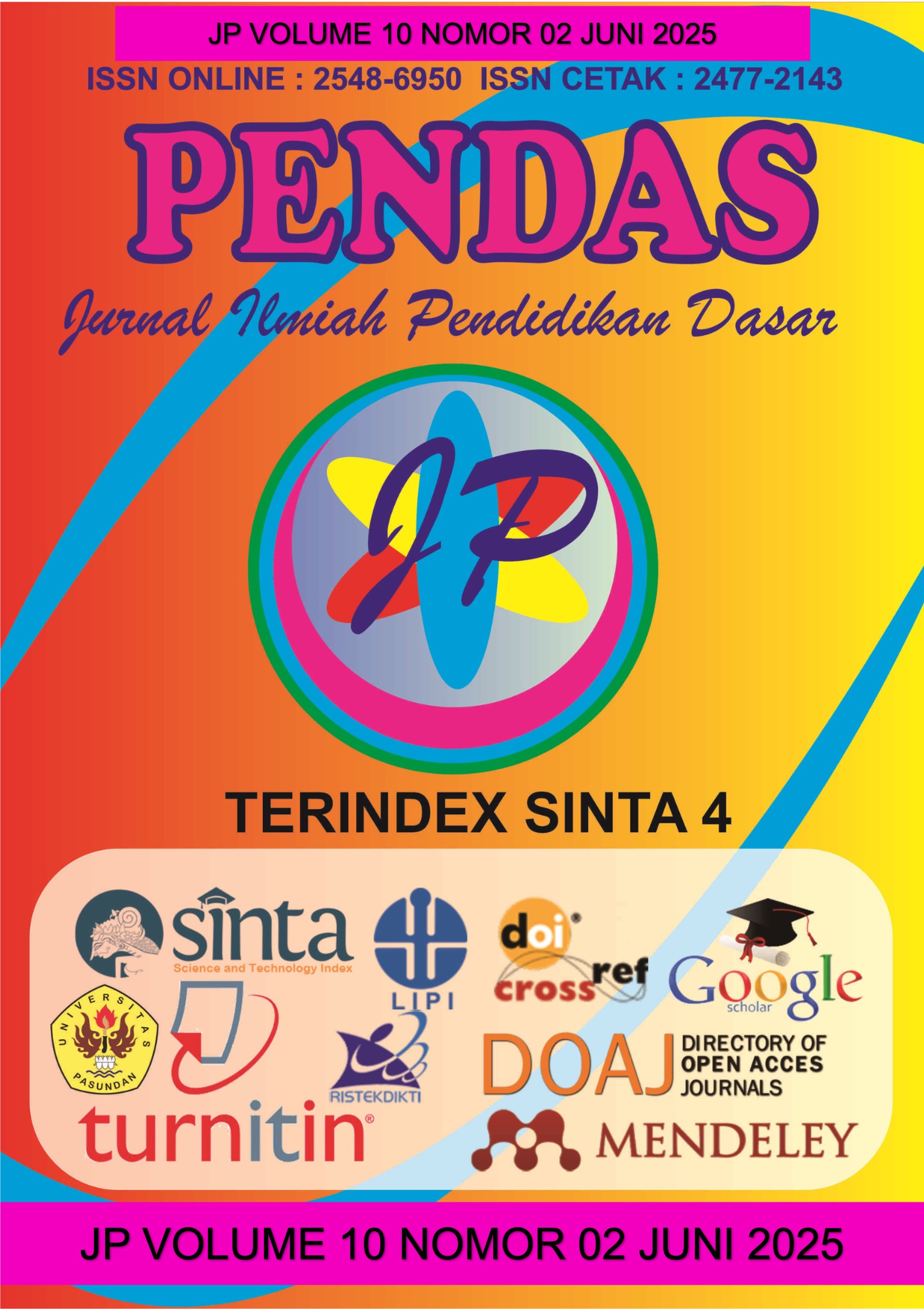THE ROLE OF PEER SOCIAL SUPPORT AND LONELINESS IN PREDICTING ONLINE GAMING ADDICTION AMONG ELEMENTARY SCHOOL CHILDREN
DOI:
https://doi.org/10.23969/jp.v10i02.23973Keywords:
online gaming addiction; peer social support; loneliness; elementary school childrenAbstract
The advancement of digital technology has led to a significant increase in online game usage among elementary school children. While gaming may offer certain cognitive and emotional benefits, excessive use poses a risk of addiction, which can negatively impact children's academic, social, and psychological well-being. This study aims to examine the role of peer social support and loneliness in predicting online gaming addiction among elementary school students. Employing a quantitative approach with a causal-comparative method, the study involved 62 students from grades IV to VI in Bekasi Regency and Municipality, selected through random sampling based on criteria for online gaming addiction. Data were collected using three psychological scales, each validated and tested for reliability. Data analysis was conducted using multiple linear regression, preceded by classical assumption tests. The results revealed that neither peer social support nor loneliness, whether individually or jointly, significantly predicted online gaming addiction. These findings suggest that online gaming addiction in elementary-aged children cannot be explained solely by psychosocial factors, but must also consider other elements such as parental supervision, self-control, and game design features. The study highlights the need for more comprehensive and context-based intervention strategies tailored to children's environments.
Downloads
References
Chen, C.-Y., Chen, Y.-C., & Gau, S. S.-F. (2020). ADHD and online gaming addiction: Roles of self-efficacy and game-use expectancies. Frontiers in Psychiatry, 11, 293. https://doi.org/10.3389/fpsyt.2020.00293
Cheung, H.S & T. Sim (2014). Social support from parents and friends for Chinese adolescents in Singapore Youth Soc., 49 (2014), 10.1177/0044118X14559502
Collins, N.L & Feeney, B.C (2004). Working models of attachment shape perceptions of social support: evidence from experimental and observational studies. J. Pers. Soc. Psychol., 87 (3), p. 363
Creswell, J. W., & Creswell, J. D. (2022). Research design: Qualitative, quantitative, and mixed methods approaches (6th ed.). SAGE Publications.
Delgado, E.C, Serna, I. & Martinez, E.C (2022). Parental attachment and peer relationships in adolescence: A systematic review. Int. J. Environ. Res. Public Health, 19 (2022), 10.3390/ijerph19031064
Deng, Y. Cherian, N. Khan, K. Kumari, M. Sial, U. Comite, B. Gavurová, J. (2022). Family and academic stress and their impact on students’ depression level and academic performance. Journal of Front. Psych., 13 (2022), Article 869337, 10.3389/fpsyt.2022.869337
Fletcher, J.M. (2008). Adolescent depression: diagnosis, treatment, and educational attainment. Journal of Health Econ., 17 (11), pp. 1215-1235
Herdiansyah, H. (2022). Statistika Parametrik, untuk penelitian korelasional dan causal-comparative. Cikarang: PU-Press
Kuss, D. J., Lopez-Fernandez, O., & Pontes, H. M. (2021). Online gaming addiction in children and adolescents: Prevalence, risk factors, and prevention. Current Psychiatry Reports, 23(1), 1–8. https://doi.org/10.1007/s11920-020-01209-y
Lemmens, J. S., Valkenburg, P. M., & Peter, J. (2020). The effects of pathological gaming on aggressive behavior. Journal of Youth and Adolescence, 49(2), 277–289.
Mulyadi, D., & Permana, I. (2022). Pengaruh dukungan sosial terhadap perilaku adiktif media digital pada anak. Jurnal Psikologi Ulayat, 9(1), 45–58.
Pontes, H. M., & Griffiths, M. D. (2020). A new era for gaming disorder research: Time to shift from consensus to evidence. Addiction, 115(7), 1305–1306. https://doi.org/10.1111/add.14982
Prasetya, H., & Damayanti, N. (2022). Kecanduan game online pada anak usia sekolah: Studi literatur. Jurnal Psikologi & Pendidikan, 19(2), 141–150.
Putra, D. A., & Mahmud, A. (2021). Tren penggunaan gadget dan dampaknya terhadap perilaku sosial anak usia sekolah dasar. Jurnal Pendidikan Anak, 8(1), 12–25.
Santrock, J. W. (2020). Children (14th ed.). McGraw-Hill Education.
Tang, C. S., Koh, Y. W., & Gan, Y. (2021). Peer relationship and Internet gaming addiction among adolescents: The role of loneliness and depression. Journal of Behavioral Addictions, 10(3), 637–645. https://doi.org/10.1556/2006.2021.00074
Yeo, K. C., Yuen, M., & Lim, B. S. C. (2021). Gaming addiction and loneliness in schoolchildren: A moderated mediation model of peer support. Children and Youth Services Review, 121, 105864. https://doi.org/10.1016/j.childyouth.2020.105864
Zhou, Z., Li, X., & Wang, Y. (2021). Peer victimization and Internet addiction in adolescence: Mediating roles of loneliness and depression. Children and Youth Services Review, 120, 105762.
Downloads
Published
Issue
Section
License
Copyright (c) 2025 Pendas : Jurnal Ilmiah Pendidikan Dasar

This work is licensed under a Creative Commons Attribution 4.0 International License.














































